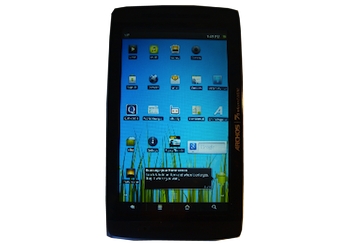
Wikipedia
I’ve yet to read Nick Carr’s latest, The Shallows, which takes a pessimistic view of the effects of writing and scanning tweets, SMSs, IMs, etc. on our neural wiring.
It’s on my reading list. Certainly his claim that our attention spans are being stunted, which may ultimately degrade our overall ability to follow more complex, non-shallow arguments when needed, has made its way into our public arguments on the Internet and always-on digital technology
In his Rough Type blog, Carr recently responded to an essay by Justin Smith that takes an opposite view. Smith, writing for Berfrois, points out that transient, non-deep relationships have been with us since the first “have a good day!” was uttered.
The Internet just turns what were trivial, meaningless interactions within our own small social groups into trivial virtual interactions with our friends, along with a much larger network of “friends”.Continue reading






 After burning off my holiday calories shoveling out of Snowmageddon 2010, I was ready to settle down with a good book and a flagon of mulled cider. Perhaps I was still looking for more Sisyphean exercises, so instead of Harry Potter, I reached for my MacBook and downloaded the FCC’s complete Report and Order in the Matter of Preserving the Open Internet, otherwise known as the Net Neutrality rules.
After burning off my holiday calories shoveling out of Snowmageddon 2010, I was ready to settle down with a good book and a flagon of mulled cider. Perhaps I was still looking for more Sisyphean exercises, so instead of Harry Potter, I reached for my MacBook and downloaded the FCC’s complete Report and Order in the Matter of Preserving the Open Internet, otherwise known as the Net Neutrality rules.


 Xydo is a recommendation startup I first discovered at Hoboken Tech Meetup. Since then I’ve partially trained GetGlue and Hunch to respond to my tastes (not successfully), perused Parse.ly’s recommendation app for filtering feeds, and gauged Google’s own Prediction APIs and Set suggestion tools (pretty good stuff).
Xydo is a recommendation startup I first discovered at Hoboken Tech Meetup. Since then I’ve partially trained GetGlue and Hunch to respond to my tastes (not successfully), perused Parse.ly’s recommendation app for filtering feeds, and gauged Google’s own Prediction APIs and Set suggestion tools (pretty good stuff).